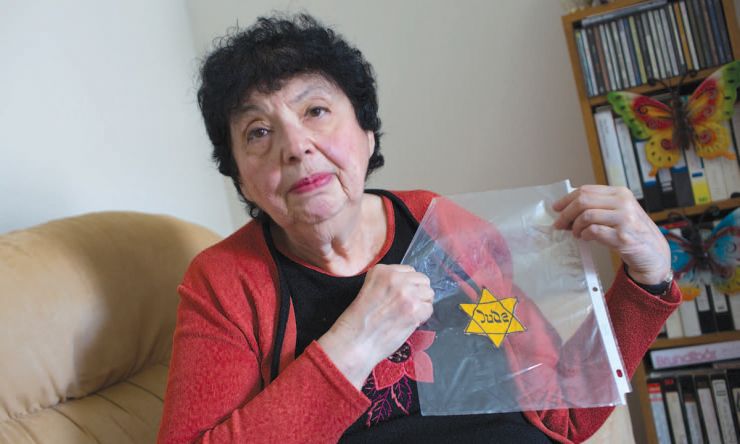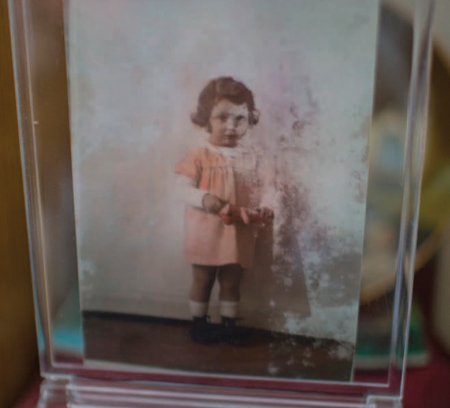Retiree Inge Auerbacher
August 23, 2019
Retiree Inge Auerbacher survived the Terezin Concentration Camp. She is dedicated to fighting hatred and intolerance.

It has been nearly 75 years since the Russian army liberated Inge Auerbacher and her family from a Nazi concentration camp in Czechoslovakia. She was just ten years old at the time and had endured three years in the unspeakable conditions at the Terezin (also known as Theresienstadt) Concentration Camp. Auerbacher and her parents were among only one percent of the people who survived long enough to be liberated. Most prisoners, including her best friend and bunkmate in the camp, Ruth, were sent to Auschwitz and never returned.
Like many German Jewish refugees at the time, the Auerbacher family was not immediately granted asylum in the United States. As the Second World War was ending they were forced to return to Germany, before eventually emigrating in May 1946 and settling in Queens, New York.
But life in the concentration camp had taken its toll on Auerbacher, particularly on her physical health. She spent her first two years in the U.S. in the hospital recovering from a severe case of tuberculosis. When the family moved to Bushwick in Brooklyn, she spent another year recovering in bed, though she was hardly idle.
“I taught myself English by listening to the radio,” recalls Auerbacher. “I did not go to school in the U.S. until I was 15 years old.”

She eventually became an 1199SEIU delegate and helped enforce the contract until she retired in 1997.
“Unions meant a lot to my family,” said Auerbacher. “Without being a member of 1199, I would have had less money because I would have had to pay for my own pension and health care.”
A busy retiree, Auerbacher is very proud to live in her diverse Queens neighborhood, in the same house her parents settled in many decades ago.
“On one side my neighbors are a devout Muslim family from Bangladesh. On the other side there is a Hindu family. There is also a Christian household.”
"When I was a child in Nazi Germany, I had to wear a Jewish star and travel in a different section of the train.”
Auerbacher’s story is reflective of 1199 tradition. Some 80 years ago, 1199’s founders—mostly Jewish pharmacists who had been barred from medical school by institutional anti-Semitism—came together to fight not only for better wages and working conditions, but also for social and racial justice. Their determination was formed by years of anti-Semitic discrimination and flight from the anti-Semitic massacres in Russia and eastern Europe in the 20th century, known as pogroms.
Auerbacher fears that anti-Semitism is again on the rise in the U.S. and is fighting to reverse that trend. Even though she now suffers from spinal stenosis and has trouble walking as a result, Auerbacher still travels the world to tell her story.
“I go back to Germany every year to speak in the schools,” she said. Auerbacher firmly believes that the antidote to hatred is education and has devoted her retirement to doing just that.
“When I was a child in Nazi Germany, I had to wear a Jewish star and travel in a different section of the train,” remembers Auerbacher. “We have four religions living sideby- side here in Queens, which is a wonderful thing.”
- 1199 Magazine | July / August 2019

